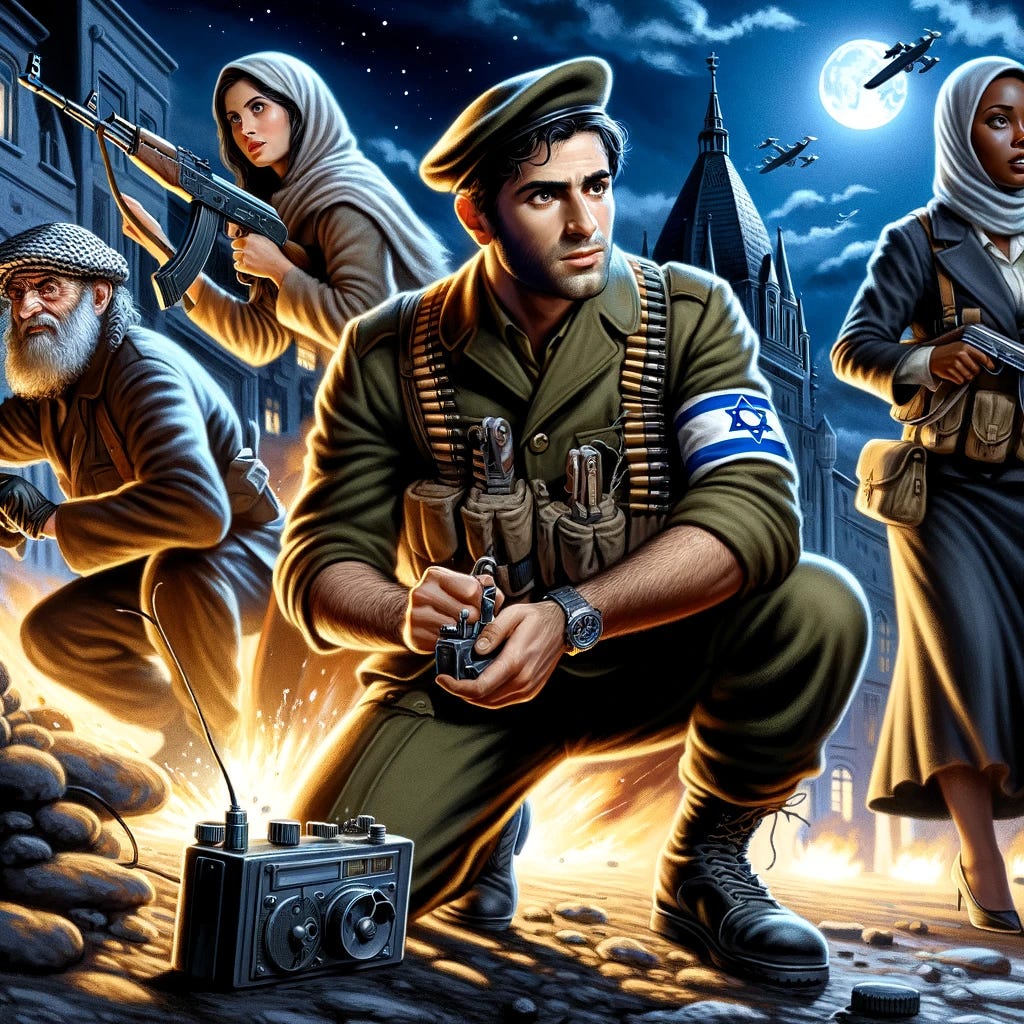From the Ashes of the Holocaust: The Birth of The Avengers
In the shadowy aftermath of the world's most devastating war, a tale emerged, as riveting as it is unsettling. It's a story not of caped crusaders from the pages of comic books, but of real-life avengers, forged in the crucible of the Holocaust's horrors. This is the tale of a group of Jewish partisans, known as "The Avengers", who, in the wake of World War II's carnage, embarked on a clandestine mission of retribution against those who had orchestrated the nightmare they had endured.
In the grim aftermath of the Holocaust, where the stench of death still lingered in the air and the screams of the innocent echoed in the minds of survivors, these individuals found themselves unable to simply return to the remnants of their shattered lives. The Avengers were not soldiers in a traditional sense, nor were they vigilantes in the vein of noir fantasies. They were survivors, scarred and seething with a burning desire for justice – or what they saw as justice.
At the heart of their dark odyssey was a plan that seemed to leap from the pages of a spy thriller: to infiltrate the water supply of a U.S. prisoner-of-war camp and poison thousands of German prisoners, the very agents of their torment. The target was precise and chilling – 2,283 German prisoners, each a symbol of the unfathomable cruelty inflicted upon their people.
Led by Abba Kovner, a poet turned partisan, the Avengers were a group as diverse as the experiences that had led them to this moment of desperate action. Their plan was meticulously crafted, a deadly ballet of subterfuge and guerrilla tactics. With the stealth of seasoned spies, they infiltrated the camp's defenses and introduced the poison into the water system.
Yet, fate, it seemed, had a twist in store. The poison was diluted, unwittingly sparing the lives of those it was meant to claim. This foiled operation, though not fatal, echoed like a gunshot through the corridors of power and the ravaged streets of post-war Europe.
The story of the Jewish Avengers is more than a tale of revenge; it's a window into the fractured psyche of a people who had stared into the abyss of human cruelty and emerged irreparably changed. It's a narrative that wrestles with the moral quandaries of justice and vengeance, etching in stark relief the question: what is the appropriate response to unfathomable evil?
This shadowy chapter of history, often overlooked in the grand narratives of World War II and its aftermath, offers a poignant reflection on the human condition. It speaks to the depths of despair that can drive individuals to the brink of morality, to actions that blur the lines between justice and vengeance.
The Avengers' saga is a sobering reminder of the complex and often messy aftermath of genocide and war. It serves as a testament to the enduring impact of trauma and the lengths to which individuals will go to seek retribution for the unimaginable atrocities they have endured.
As we delve into this dark chapter, we are reminded that history is not just a collection of dates and events, but a tapestry woven from the myriad human experiences, each thread colored by pain, hope, anger, and the relentless pursuit of what is perceived as justice. The story of the Jewish Avengers challenges us to confront the uncomfortable questions about the nature of retribution and the legacy of one of humanity's darkest hours.




